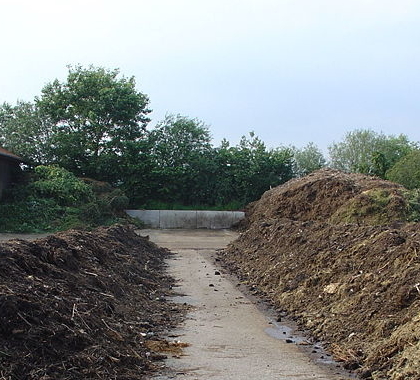Washington State became the first state in the nation to legalize an accelerated decomposition method to transform deceased persons into soil after Gov. Jay Inslee (D) signed a new bill passed by state legislators.
Senate Bill 5001, sponsored by Washington state Sen. Jamie Pedersen (D-Seattle), legalizes “human composting,” which its proponents argue has less of an environmental impact than cremation. For instance, a 2017 report in Pacific Standard magazine says cremation releases 600 million pounds of carbon dioxide into the atmosphere every year.
Human composting takes between four to seven weeks to turn the remains of human into about a cubic yard of compost.
Jaime Smith, a spokesperson for Gov. Inslee, told the Washington Post the process is a “thoughtful effort to soften our [humankind’s] footprint,” on the earth.
Rest In Peat
Katrina Spade, CEO of Recompose, an alternative burial company, hatched the idea of human composting. Speaking at a TED Talk —a series of presentations and videos by influential speakers who are leaders in their field — she explained the process involves moving the body to a specially designed facility that functions like “… part public park, part funeral home, part memorial to the people we love.” Once the remains arrive, she says they are placed into a vessel filled with wood chips, alfalfa and straw. Then after several weeks of microbial activity, the body breaks down into soil and can then be given to the family of the deceased or used by conservation groups to “nourish the [surrounding] land.”
In an interview with Metropolis magazine Spade claimed the process only uses an eighth of the energy required for cremation and saves more than one metric ton of carbon dioxide for every individual who opts to use it.
Spade told Metropolis once her flagship facility opens in Seattle, she hopes to create a toolkit to help cities across the world implement similar systems.
Cultural, Legal Obstacles Remain
The New York Times‘ Catrin Einhorn, writing about human composting, says a major impediment the idea of human composting will have to overcome is the “yuck factor,” as many cultures find the idea of composting human remains repulsive and a “contravention of cultural and religious norms.”
Einhorn also notes it remains to be seen how human compost can be used, with some experts cautioning against using livestock compost on fields containing fruits and vegetables, while others highlight the risks associated with heavy metals like the kind found in dental fillings.
State Sen. Pedersen told the Associated Press the same laws governing the scattering of cremated remains will dictate the use of human compost.
Kenneth Artz ([email protected]) writes from Dallas, Texas.
Official Connections
State Sen. Jamie Pedersen (D-Seattle): http://sdc.wastateleg.org/pedersen/; [email protected]





